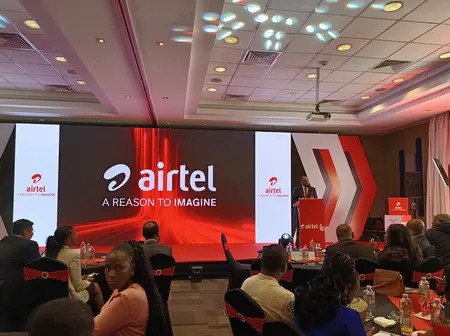Mobile money is one of Africa’s great innovations. But its speed and simplicity have created a stubborn headache: what happens when you send money to the wrong person? That dilemma was underscored twice last month — first in a landmark decision against Airtel, and then in a viral Twitter thread by Kenyan user Ms. Nyaguthii, who recounted how she had to rally strangers online to recover her money.
The Comesa Competition Commission (CCC) recently ordered Airtel’s Zambian subsidiary to return $250 (Sh32,300) to a customer who accidentally transferred the funds to the wrong account in October 2023. The user, a Zambian living in the Democratic Republic of Congo, had been bounced between Airtel offices in both countries for nearly two years before the case reached the regional regulator.
The Commission ruled that mobile money providers have an obligation to help consumers recover funds sent in error — a sharp rebuke to the industry practice of blaming customers or requiring police involvement.
While the Airtel ruling sets an important precedent, Nyaguthii’s viral Twitter thread illustrated the everyday struggle in far more personal terms.
On a Friday evening, while on a WhatsApp call with her sister, she mistakenly typed the wrong digit while moving money from her bank to M-Pesa. The money landed in a stranger’s account. Calls and texts went unanswered.
Instead of giving up, she turned to social media. She posted in local Facebook groups, reached out to community members, and even got the chief’s number through crowdsourcing. In her words, “social media is the new nyumba kumi.”
Her thread captured the twists: chasing dead ends with anti-fraud contacts, police referrals, and even DCI officers across multiple towns. Eventually, Twitter users identified the recipient as a boda rider in Baringo using a line registered under his girlfriend’s name, a KMTC student. With the chief’s help, the man was confronted by elders and finally refunded the money the next morning.
What stands out is not just the recovery, but the method. It wasn’t the telco or the police who solved it. It was ordinary citizens, community leaders, and digital networks — essentially a grassroots safety net filling the void left by formal protections.
Whether it’s a cross-border case in Zambia or a mistaken transfer in Karatina, the story is the same: recovery is unpredictable, often depending more on luck and community goodwill than on reliable systems.
In Kenya, once funds are withdrawn or used, mobile money providers usually decline reversals. Even when laws like the Computer Misuse and Cybercrimes Act, 2018 make it illegal to spend wrongly received money, enforcement is slow and uneven. In cases where a recipient has overdrafts such as Fuliza, money disappears instantly into debt repayments, leaving no room for reversal at all.
The CCC decision reframes reversals as a responsibility of service providers, not a gamble for consumers. Meanwhile, Nyaguthii’s story reveals just how much frustration people endure when systems fail. Together, they highlight the urgency of reform.
For telcos, this means designing processes that protect users beyond the initial transaction. For regulators, it means enforcing obligations that already exist on paper. And for consumers, it raises a pressing question: should recovering wrongly sent money depend on luck, goodwill, and social media campaigns?
The mobile money reversal challenge has become too widespread to ignore. Airtel’s loss at the regional level and the viral community-led recovery in Kenya show that pressure is building from both regulators and the public.
If the industry is to maintain the trust that made mobile money a continental success, telcos will have to close the gap between convenience and protection — because for too many Africans, one wrong digit still means money gone for good.

Leave a Reply